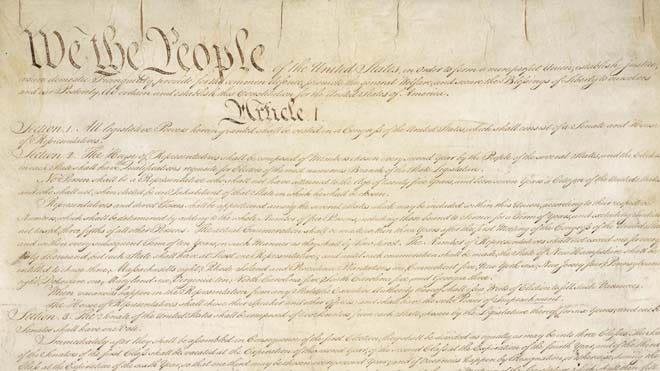Now that my state has voted for this, I'm becoming interested in finding out more about it. I recall it came up once before a few years ago, however this time it seems like there is a growing interest shown by the voting for it now by several states. Here I am collecting information for consideration.
The attachments below are links that go to articles, websites or other sources. They may be pro or con in nature and the angle isn't a reflection of my opinion of this subject one way or the other. I'm merely trying to gather related information here.
Bookmark this page and check back often if you are interested in this topic as new articles will be added as they are discovered.
The primary Webiste for official information is: ConventionOfStates.Com
Points of interest found in the attachments:
Florida Passed the Vote
David Barton, founder of Wallbuilders, who has never previously been for a convention of states has come out for it and Glenn Beck supports his response.
Found on Facebook Convention of the States Florida:
Steps in the Process
Here is how it would work:
Thirty-four state legislatures would pass similarly worded resolutions which call for an “Article V convention to propose amendments which limit the authority and jurisdiction of the federal government.”
- Congress would have a non-discretionary duty to call the convention.
- The call could only name the time and place for the Convention.
- The convention is a convention of the states.
- This necessarily means that each state has its own ability to prescribe whatever means it wishes to choose its own delegates.
- All voting would be on the one-state, one-vote rule, just as the original constitutional convention. (And which is the only possible rule when the members of the convention are the states and not the delegates).
- Only amendments that are germane under the language of the applications (i.e., they call for limitations on the authority and jurisdiction of the federal government) may be approved.
- A simple majority vote (of states) is required to propose amendments.
- Congress would then have the duty to name one of two methods for ratification of the proposed amendments. They could call for state-based ratification conventions, or for ratification by the state legislatures.
- When 38 state legislatures (or state conventions) ratify any or all of the proposed amendments, they become a part of the Constitution of the United States.
Answering Common Questions
Can the Convention be limited to a specific subject?
Yes. We have a 200 year legislative precedent that says that the single subject (or purpose) rule has been followed by Congress. The Convention will only be called when 34 states make applications for a single subject or purpose.
Just like Congress, the Convention must also follow the single subject rule. We have a judicial precedent which is important also.








_0.jpg)





